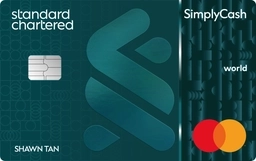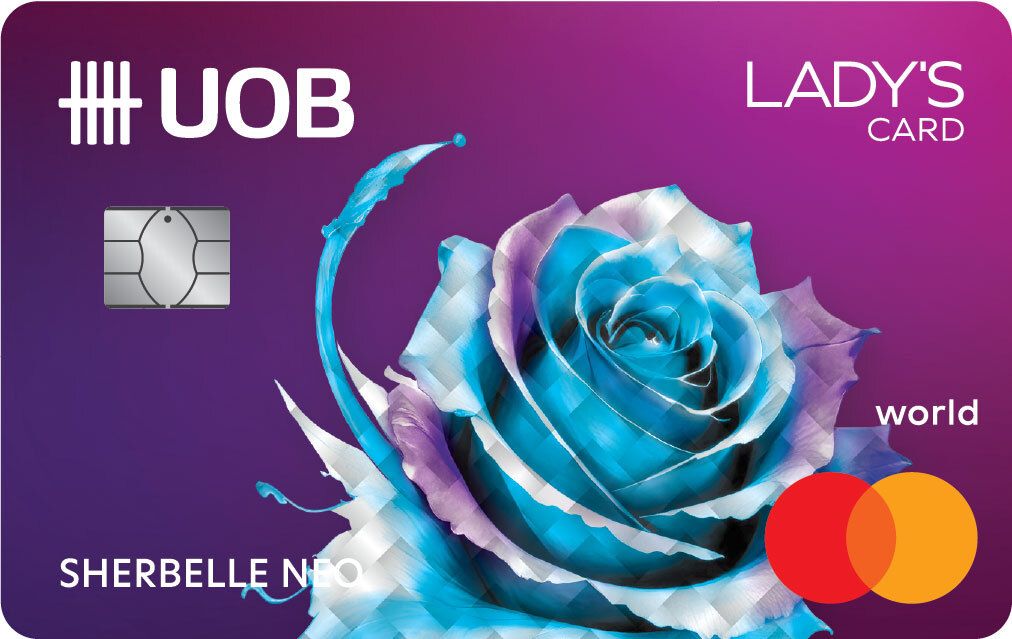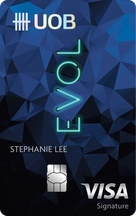Lunar New Year is here again, which means it’s time for angbaos! Here’s our concise guide to how much to give, etiquette to observe and things to look out for around the time-honoured tradition.
Think Lunar New Year and angbaos (red envelopes filled with cash) invariably come to mind. While they are traditionally meant to be given to young children as a blessing for the new year (to buy new clothes, food to eat, etc.), angbaos are also regularly exchanged between adults as a time-worn practice.
As one of the most visible and enduring parts of the Lunar New Year experience, angbaos are here to stay -- whether in traditional paper cash form, or digital e-angbaos that come with an additional halo of climate-friendliness.
No matter which way you decide to go, you may be wondering how much is the "going rate" for angbaos in 2025, what are the do's and don'ts and other trivia you may need to know. We cover it all in this complete guide.
Table of contents
How much to give for LNY ang baos?
Let’s get the most burning question out of the way. How much should you put into your red packets? What’s the “going rate”? And how quickly will you get cancelled for packing a single, measly S$2 note?
Ok, let’s be reasonable. How much to give in your ang baos is entirely up to you. It’s your money after all, and you're completely at liberty as to how you spend it.
"But, but, what will people say?", you ask? Well, the question you should be asking is of it makes sense to, say, blow half your year-end bonus just to seem generous or well-to-do in front of your relatives. That's called "keeping up with the Joneses", which is a financially ruinous habit to have. Why not kick it as part of your Lunar New Year resolution?
Thus, the financially responsible approach is this: As with all things, set a total budget for angbaos for the year, and work within that budget. If you have more nieces and nephews than the norm, too bad, they'll just have to make do with a smaller sum per pax.
2025 LNY ang bao recommended rates
Having said that, is there a “going rate”, for those of us who prefer not to risk public censure during a time when face must be saved at all costs? Why, yes there is, as a quick Google search will tell you.
And here’s our contribution to the ongoing conversation.
|
Relationship
|
How much to give
|
|
Parents, spouse
|
S$188 to S$2,888
|
|
Grandparents, parents-in-law, own children
|
S$88 to S$888
|
|
Siblings, siblings-in-law, cousins
|
S$68 to S$288
|
|
Nieces and nephews, children of friends, colleagues, neighbours, etc.
|
S$10 to S$20
|
|
Domestic helpers
|
S$20 to $80
|
|
Acquaintances and other informal relations
|
S$6 to S$18
|
|
Others (service staff, etc.)
|
S$2
|
These are, of course, mere guidelines, so feel free to tweak them as you wish. But generally, it is customary to reserve higher amounts for closer/more important family members, while preparing smaller amounts for those lower in the hierarchy or with more distant ties.
There’s a practical reason for this too: You likely have fewer VIPs in your life than, say, colleagues and acquaintances, so stacking your ang bao amounts this way will also help you rein in your budget.
And if you need to further cut down, rounding off to tens instead of eights will do the trick.
Notice that the lowest amount recommended in our list is S$6 - this is for people you at least know by face. For all others, the customary S$2 ang bao is acceptable.
Note that you don't have to give ang baos to everyone you meet. Given the high cost of living these days, it might be wiser to keep your ang bao list short and sweet.
To help combat the rising costs of living, consider using a high-interest savings account to prevent your money's purchasing power from being eroded.
💡 Pro-tip: Most savings accounts allow you to earn higher interest when you hit a minimum spend on an eligible credit card.
For instance, the UOB One Account can be paired with the UOB One Card, UOB Lady's/Lady's Solitaire Card, UOB EVOL Card, and other debit cards. All you have to do is spend at least S$500 per month and credit a minimum salary of S$1,600 into the account, and you're entitled to up to 7.8% p.a. interest!
UOB credit cards to consider
- UOB One Card: Up to 10% cash rebate (or 15% if new cardmember) on public transport, Shopee, Dairy Farm International, Grab, UOB Travel, McDonald's transactions with min. S$500/S$1,000/S$2,000 spend per month
- UOB Lady's Card: 6 mpd on one enrolled category
- UOB Lady's Solitaire Card: 6 mpd on two enrolled categories
- UOB EVOL Card: 8% cashback on online and mobile contactless spend with min. S$600 spend per month
UOB Lady's Card open_in_new






⚡Flash Deal⚡: Win an Apple iPhone 17 256GB (worth S$1,299) on top of existing rewards such as a GoPro HERO13 Black Action Camera (worth $590) or S$60 via PayNow when you apply for select UOB Credit Cards and make a min. spend of S$1,500 within the first 30 days of card approval. Valid till 31 January 2026. T&Cs apply.
Do’s and don’ts when giving and receiving ang baos
A lot of what follows is going to be a matter of common sense, but we’re putting them out there as a reminder just in case.
Ang bao do’s
- Amounts containing the number 8 are particularly auspicious, but round or even numbers will do as well.
- Give and receive ang baos in person, and use both hands to signify respect.
- It’s customary to utter some auspicious-sounding phrases, but otherwise, a simple Xin Nian Kuai Le (Happy New Year) or Gong Xi Fa Cai will do.
- When giving ang baos to elders, include a pair of tangerines as a token of abundance.
- Unless you’re in a hurry, allow some time after arrival before offering ang baos.
- Recycle your used red packets, instead of throwing them away in the thrash.
- Elders or those more seniors should receive a higher amount than those junior to them. This signifies your wish for the elder’s longevity and prosperity, according to some feng shui practitioners.
Ang bao don’ts
- Avoid coins and odd numbers in your ang baos
- In particular, ang bao amounts should not contain the number 4 for its inauspicious-sounding pronunciation in Mandarin.
- Don’t return ang baos too hastily. It’s ok to wait for an opportune moment.
- If reusing red packets, avoid using any that bears someone’s name.
- Never open an ang bao in front of the giver.
- Don’t pester your elders for ang baos. Instead, wait patiently to be offered.
- Don’t use ang baos with the wrong zodiac animal, or featuring greetings for birthdays or other occasions.
LNY ang bao etiquette, tips and trivia
Who should give out ang baos?
Tradition dictates that only adults who are married should give out ang baos. This means that besides your parents and grandparents, you can also expect angbaos from married aunts and uncles, siblings and cousins.
Today, however, the requirement to be married is less strictly enforced. Once an adult reaches the age of 30 and beyond, they may also choose to give out ang baos. For such individuals, the practice is more discretionary.
Who should you give ang baos to?
Strictly speaking, you’re bound by tradition only to give ang baos to your immediate family, i.e., your parents and unmarried siblings. However, it is also common to give ang baos to grandparents and other elderly folk.
Extended family members are also often included, but here ang baos follow a descending trajectory. That’s to say, juniors receive ang baos from their elders, such as from elder brother to younger sister, and not the other way around.
Besides tradition, ang baos may also be given for practical reasons. For instance, there’s no requirement for you and your spouse to provide an ang bao for your poor, spinster aunt, but you might want to do so anyway as a face-saving way to help them out if they are in dire straits.
In any case, you won’t go wrong giving angbaos to children and young adults. This applies to casual relationships too.
How did the practice of giving ang baos come about anyway?
Two fascinating Chinese legends that speak to the origin of the practice. In one, the Eight Immortals transformed themselves into coins to help a mortal child. The coins were wrapped in red envelopes and placed under the child’s pillow to ward off a demon named Sui. From then onwards, parents started giving money wrapped in red envelopes to children during the new year to suppress the demon Sui. This is also why ang baos are traditionally known as Ya Sui Qian (lit., money to suppress the demon Sui).
In another legend, after the birth of his son, the Emperor Xuanzhong gave gold and silver coins to his concubine to be used as charms to protect the newborn. This practice was adopted by parents who started giving money to their children to ward off evil.
No matter which legend you choose to believe in (or not), the colour red has historically been regarded as a powerful symbol of good luck and fortune. Thus, it is not surprising that in ancient China, the practice of giving money wrapped in red paper or cloth took root and became a popular custom that has endured through the ages.

SingSaver Exclusive Offer: Get an Apple iPad Air M3 11" WiFi 512GB (worth S$1,349), Apple iPhone 17 256GB (worth S$1,299), or up to S$1,200 Cash when you successfully apply for a Citigold account, become an Accredited Investor, and make a S$300,000 deposit within 3 months of account opening, maintaining these funds until gift fulfilment. Also, enjoy up to 1.45% p.a. on a 3-month SGD Time Deposit. Valid till 1 February 2026. T&Cs apply.
Alternatively, get S$500 as a non-accredited investor upon successful application. Valid till 1 February 2026. T&Cs apply.
Plus, enjoy up to 7.51% p.a. interest when you join Citigold and open a Wealth First account. Valid till 1 February 2026. T&Cs apply.
In the age of climate change, should ang baos be considered wasteful and abandoned altogether?
It’s undeniable that the production of new banknotes and red packets uses up valuable resources, and the short-term nature of their use may make the custom seem particularly wasteful.
Indeed, the Monetary Authority of Singapore estimates that carbon emissions equivalent to powering 430 4-room HDB flats annually are produced every year, and the majority of new banknotes issued are used only once before being returned, resulting in their destruction well before the end of their useful life cycle.
So yes, there is certainly room for improvement.
While there’s nothing that quite compares to the visceral joy of receiving and tearing open yet another ang bao, it is also up to us to nudge things towards a more sustainable future.
One way to do so is to switch to e-hongbaos and encourage all your relatives to do the same. Make a pact with your family, and create a new family tradition!
Another way is to stop being so obsessed with the appearance of your banknotes. Yes, you should avoid anything that is too soiled, crumpled or unsightly, but even banknotes that are a little worn are perfectly fine for your ang baos. The less demand there is for new banknotes, the more resources we can save together.
Also, do recycle your red packets via proper channels, such as the collection drives held by various banks around the island. Choosing red packets with generic designs will also allow you to use them for several years, instead of having to switch to a new batch every time.
Similar articles
Wedding Ang Bao Rates 2023 For Various Wedding Venues in Singapore
CNY Ang Bao Rates and Rules No One Tells You About (2021)
Attending A Wedding In The Time Of COVID-19: Ang Bao Rates, Safe Distancing Rules, And Everything You Need To Know
Money Confessions: I’m A CNY Grump and Here’s How I Avoid Giving Angbaos
11 Mind-Blowing Facts You Probably Didn’t Know About Singapore Dollar Notes
Where And How To Get New And Fit Bank Notes For CNY 2025
CNY: How You Can Use Ang Baos To Teach Kids Financial Literacy?
2021 Li Chun: Best Times On 4 February To Deposit Money













.png?width=280&name=Investments%20(6).png)